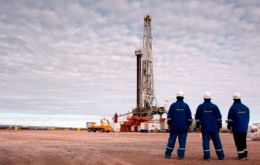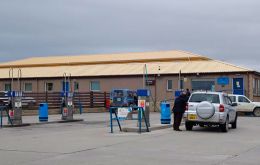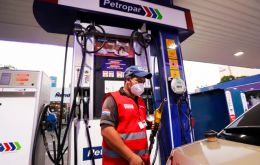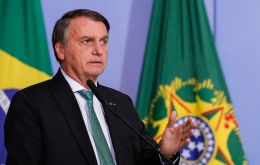MercoPress. South Atlantic News Agency
Tag: Fuel price
-
Wednesday, April 13th 2022 - 09:53 UTC
“It's going to be a long cold winter in Buenos Aires”

By Haley Zaremba, Oilprice.com – A fuel shortage is causing political turmoil and social unrest in Argentina, and could even result in a food shortage as the South American nation’s grain transporters call or a strike in the face of sky-high fuel prices during the harvest season for soy and corn.
-
Wednesday, April 13th 2022 - 09:41 UTC
Abdo enacts law eliminating fuel subsidies to Paraguayan brand fuels

Paraguay's President Mario Abdo Benítez Tuesday signed into law the suppression of subsidies to the price of fuel at pumps which helped the state-run Petróleos Paraguayos SA (Petropar) against all competitors.
-
Tuesday, April 12th 2022 - 10:11 UTC
Price of diesel in the Falklands increases to 80p a liter

The price of diesel in the Falkland Islands has risen. Gareth Goodwin from Stanley Services was quoted by Falklands Television saying volatility risen from the war in Ukraine following the Russian invasion has caused disruptions in global fuel markets.
-
Saturday, April 9th 2022 - 15:42 UTC
Paraguay: Electric cars almost sold out amid increase in price of fuel

Paraguayan traders of electric cars have nearly run out of stock as demand grew above projections due to the increasing price of fuel, it was reported Friday in Asunción.
-
Monday, March 21st 2022 - 09:43 UTC
Petropar lowers price of fuel at pumps effective March 21

The price of fuel at pumps in Paraguay will be reduced as of Monday, the state-run company Petropar has announced.
-
Thursday, March 17th 2022 - 20:53 UTC
Increase in fuel price, a crime against Brazilians, says Bolsonaro

Brazil's oil company Petrobras came under heavy criticism Wednesday from President Jair Bolsonaro, who claimed the decision to raise the price of fuel at pumps was both “absurd” and “a crime against the population.”
-
Wednesday, March 16th 2022 - 09:00 UTC
Paraguayans against new increase to the price of fuel

Paraguayan consumers have taken to the streets to protest against the latest increase in the price of fuel at pumps, while unions have threatened to take additional measures if the government takes no action to help them through their new plight.
-
Wednesday, February 2nd 2022 - 21:00 UTC
Fuel goes up 9% in Argentina after long price freeze

Argentina's state-run oil company YPF announced a price increase of around 9% in the price of fuel at pumps as of Wednesday, with 2 additional percentage points in the case of premium products.
-
Tuesday, January 18th 2022 - 09:50 UTC
Brazil's Senate wants to tackle fuel prices

Brazil's Senate Speaker Rodrigo Pacheco Monday said that come February he intends to put up for voting a bill aimed at creating stability in the price of fuel.
-
Friday, October 30th 2020 - 09:37 UTC
Brazil keeps interest rate at record low, despite a spike in food and fuel inflation

Brazil’s central bank kept its key interest rate at a record-low 2.00% on Wednesday, maintaining its “forward guidance” pledge to keep rates lower for longer and even the possibility of further easing, despite the recent rise in inflation and fiscal risks.
